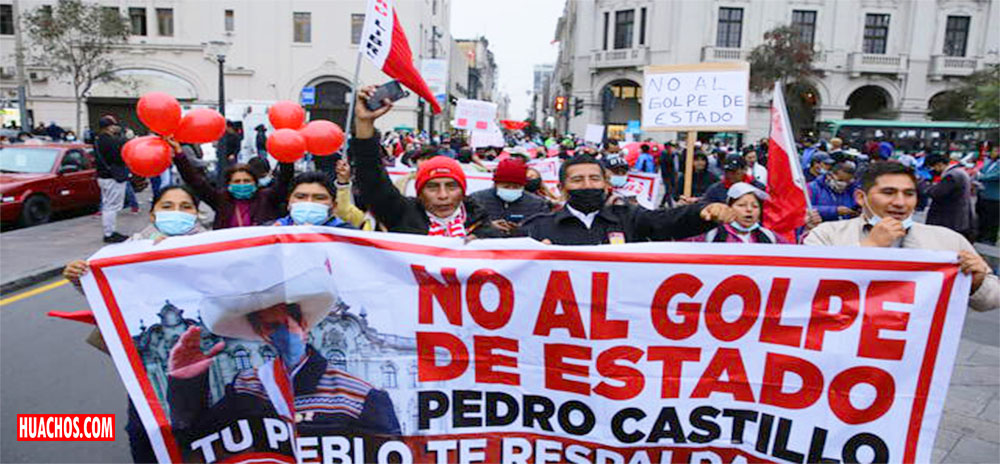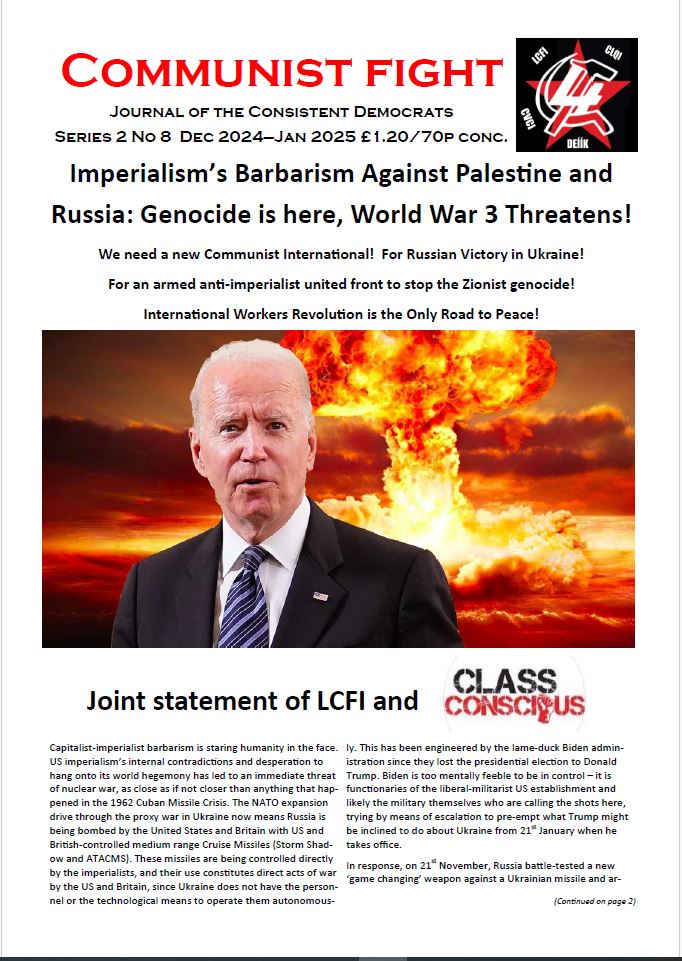
Pedro Castillo proposed a referendum in January this year in Peru to give Bolivia access to the sea through Peruvian territory. From Bolivia, the president of the Chamber of Deputies of the Plurinational State of Bolivia, Freddy Mamani, welcomed the Pedro Castillo’s initiative, considering that such a gesture by the president reflects his “democratic spirit” and his desire to strengthen brotherhood between the two nations.

From then on, Peru’s Congress began to plot a parliamentary coup against Pedro Castillo, accusing him of “treason against the homeland” for his proposed referendum to give Bolivia access to the sea through Peruvian territory.
To avoid a parliamentary coup, Castillo raised the possibility of dissolving Congress, a power that on certain occasions the Peruvian Constitution reserves to the presidents of the country. In this sense, before facing a new motion of censure, Castillo sought the dissolution of parliament and a call for new parliamentary elections.
Congress, where the Fujimorist right has a majority, voted through a motion to unseat Castillo for “permanent moral disability.” Castillo was then detained by the National Police. Dina Boluarte, vice president until Castillo’s fall, was proclaimed president of Peru on Wednesday, December 7, by Congress.
In addition to the facts that make up the chronicle of the fall of Pedro Castillo, it is necessary to point out the profound reasons for the coup orchestrated by the Peruvian right-wing opposition, which accuses Castillo of treason to the homeland for solidarity with a secular demand of a sister nation of Peru. This fascist opposition is the true traitor to the peoples of Peru and of all Latin America and loyal to USA imperialism. Pedro Castillo’s attempt to give Bolivia an exit to the sea was very much in the sense of forming a Peru-Bolivia axis that, if formed, would change the equilibrium system in Andean America.
Thus, for example, in a possible Peru-Bolivia axis, Bolivia itself could negotiate the issue of lithium on better terms with multinationals. Castillo’s downfall also closes, for now, the possibility of direct access, across the Pacific to the heart of Latin America, of the Silk Road, promoted by China.
Therefore, the parliamentary coup against Castillo is part of an imperialist offensive in Latin America, as is also seen in the case against Cristina Fernández de Kirchner in Argentina.
As we said in June 2021 when Pedro Castillo’s election victory took place.
“The intention to reconile the demands of the exploiters and the exploited never ends well. Peru Libre and Castillo will be no exception. Nor does it seem that by capitulating to the coupists’ appetites will a coup be stopped. After the 2014 elections, when the same blackmail was made against Dilma, the re-elected PT president of Brazil did not call on the masses to fight against the hybrid war of imperialism and the bourgeois coupists. On the contrary, she incorporated into her programme the programme of the defeated neoliberal candidate. Result: she was discredited before her constituents, the working masses, became weakened politically and socially and this eased the way for the coup without the coupists needing to use force, and the coup was successful in 2016.
At the same time that workers in Peru must advance in their political independence through the construction of the party constituted by its vanguard. Having as its guide the path of permanent revolution, the only way to materialize the historical interests of the exploited and oppressed. That is why we do not call for support for any bourgeois government, we at TMB-FCT fight against right-wing candidacy, imperialism and electoral fraud, and call for a vote to Pedro Castillo as an instrument of this struggle in the electoral field, but we do not support bourgeois governments. Castillo was elected by the National Free Peru Party (PNPL), which defines himself as “Marxist-Leninist-Mariateguista”.
As Mariategui pointed out in a document called “Anti-Imperialist View” in which he polemicises against the “anti-imperialism” of the III International, he says that while they disparage indigenous identity and identify with the imperialist colonizers: “the national bourgeoisie see cooperation with imperialism as the best source of profit, feel sufficiently owners of political power so as not to seriously worry about national sovereignty.”
TMB – Peru: The victory of Pedro Castillo and the tasks of workers.
Therefore, it is the task of the workers vanguard in Peru to promote the independent grouping of the working class with the aim of building a party that defends the historical interests of the class and leads all the exploited in the city and country. This is the only guarantee of effective resolution of democratic and anti-imperialist demands.

